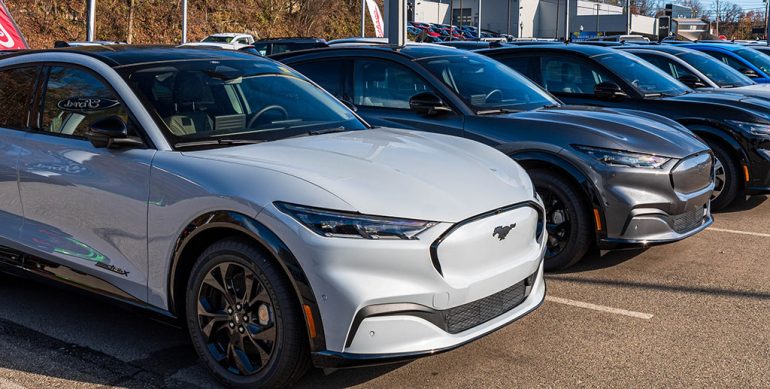
Auto dealerships across the United States, over 4,700 in total, have expressed their concerns to President Joe Biden, urging the administration to halt the Environmental Protection Agency’s (EPA) efforts to enforce stricter vehicle-pollution standards. This plea, conveyed in a letter, comes just weeks before the anticipated ruling on the EPA’s tailpipe-emissions proposal, addressing both climate change and health-hazardous pollutants.
This marks the second letter sent by auto dealers to the White House in two months regarding the EPA’s upcoming ruling, with the dealerships noting that there was no response to their initial letter sent on November 28. The proposed regulations, introduced in April, represent the strictest-ever tailpipe emissions limits from the agency.
Also, don’t forget that you can get discounted new car pricing with a free quote through qualified local dealer partners.
The Biden administration, on the other hand, remains committed to a future “made in America by American workers” and emphasizes the transition to a clean energy future. A White House spokesperson highlighted the increasing popularity of electric vehicles (EVs) and the President’s Inflation Reduction Act, which aims to make EVs more affordable, facilitating a shift towards cleaner transportation.
The EPA’s proposed regulations are a crucial component of the administration’s ambitious goal to cut domestic greenhouse gas emissions by 50% by 2030, with a particular focus on the transportation sector responsible for 58% of emissions from passenger cars and trucks. The regulations also target hydrocarbons, nitrogen oxides, and particulate matter, addressing health issues, especially for those living near heavy traffic areas.
The EPA contends that its proposed regulations could result in up to two-thirds of vehicles sold in the U.S. being electric by 2032, surpassing the administration’s previous target of 50%. The regulations, affecting light- and medium-duty vehicles from the 2027 model year, are projected to reduce greenhouse gas emissions by 56% and pollutants harmful to health by 60% by 2032.
While global automakers are committing substantial funds to transition to all-electric new vehicle sales, thousands of U.S. auto dealers express concerns about meeting the EPA’s stringent goals. Some argue that factors such as insufficient tax incentives, inadequate charging infrastructure, and limited consumer demand make the proposed electric vehicle mandate impractical.
In the November letter, around 4,000 dealerships requested President Biden to “tap the brakes” on the EPA proposal, referring to it as an “electric vehicle mandate.” The recent letter goes further, asking the administration to “hit the brakes” entirely, citing concerns about the oversupply of EVs on dealer lots and the inability to meet the proposed regulations’ sales pace.
Despite the concerns raised by auto dealers, the EPA’s tailpipe-pollution limits do not mandate automakers to sell a specific number of EVs annually. Compliance can be achieved through a mix of pure-electric vehicles, hybrid and plug-in hybrid electric vehicles, and cleaner internal-combustion engine vehicles. The EPA also suggests the use of particulate filters to reduce emissions from traditional gasoline-fueled engines.
Experts emphasize the importance of being aggressive in the transition to cleaner vehicles to meet climate policy goals. While acknowledging various ways to improve efficiencies and reduce emissions, fully electric vehicles are considered a crucial tool in achieving significant emissions cuts by 2030 and 2050. The EPA is also proposing regulations for medium- and heavy-duty trucks, with additional fuel-economy increases proposed by the National Highway Traffic Safety Administration.
Source: Associated Press